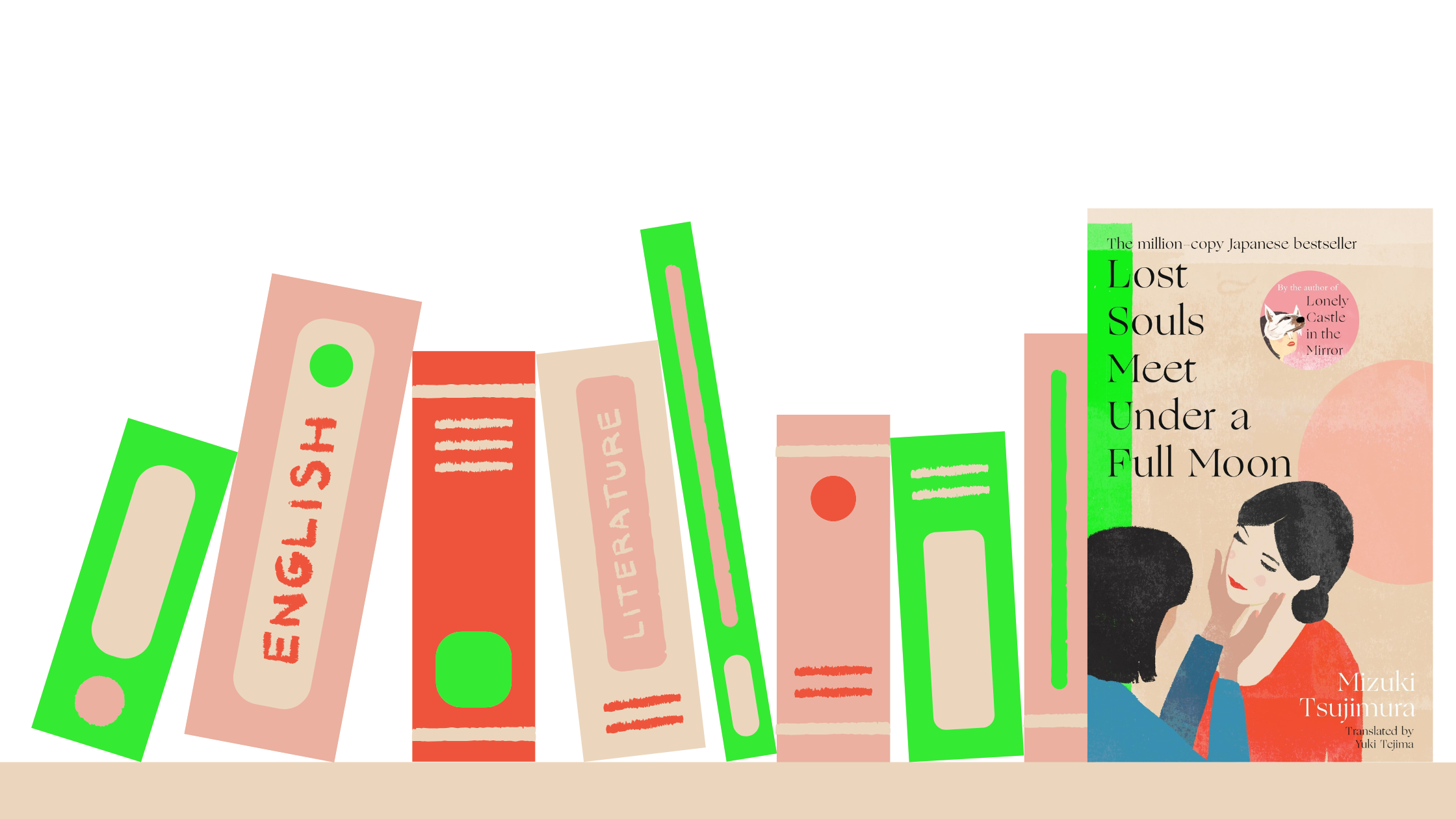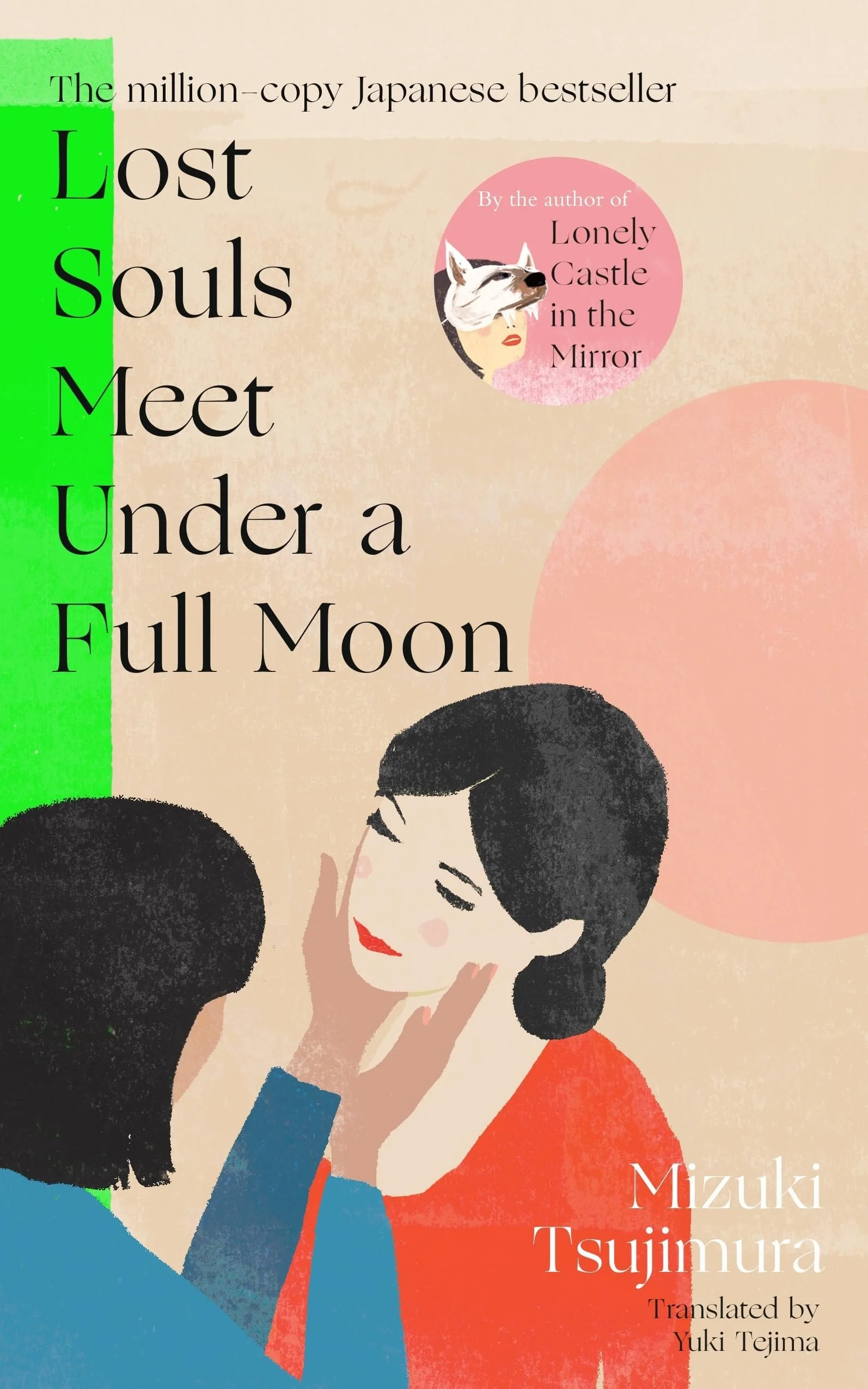Lost Souls Meet Under a Full Moon
“Whether it was selfish or not, those who had been left behind had an obligation to carry the death of their loved ones with them. In their hearts. Even if it was for their own sake. Because they had to keep on living. ”
Title: Lost Souls Meet Under a Full Moon
Author: Mizuki Tsujimura, Yuki Tejima (Translator)
Published: April 2025
Is there anyone from the afterlife you wish to see?
So asks the smart young man, Ayumi, to his clients who have come to him for a reunion with the person who once changed their life.
But it is no ordinary reunion The people they ask to see have passed away.
Calling himself the go-between, Ayumi lays down strict rules around the meetings between the living and the dead: the deceased cannot have been summoned by anyone else; they may refuse; and they must meet under a full moon.
- Anxious Hirase asks to see the celebrity who showed her kindness at a critical moment;
- An resentful family man wants clarity about a will from his beloved mother;
- After a bike accident, a school girl has a question for her former best friend;
- A salary man wants to ask the only woman he ever loved what caused her to run away.
With each reunion, tantalizing clues are scattered for readers to piece together the emotional truth behind the go-between.
With an artful balance of heart and mystery, Mizuki Tsujimura creates an unforgettable page-turner in which the living and the dead are given one last chance for closure.
Who would you like to see?
Discussion Questions
1. “You meet, you find peace, you move on.” — What do you think these meetings actually offer the living and the dead? Is peace truly found, or just a temporary sense of closure?
2. The novel suggests that those left behind carry an “obligation to carry the death of their loved ones with them.” How do you interpret that? Do you agree that grief is an obligation or can it be a choice, or even a burden?
3. Ayumi’s role as the go-between is both mystical and lonely. How did your perception of him evolve throughout the novel? Did he feel like a saviour, a victim, or something in between?
4. The book gives the dead the power to refuse a meeting. How did that detail shift your understanding of power, consent, and closure in the relationship between the living and the dead? Are there any characters you think should have refused their requests?
5. Several of the living characters seek selfish kinds of closure — to be forgiven, to find answers, to soothe guilt. Do you think Tsujimura condemns that selfishness, or simply recognises it as part of being human?
6. Ayumi queries “Do dead people exist to serve the living? How is that OK?” How do you interpret this question within the context of the book? Do you think Tsujimura critiques how we use memory and grief to serve our own needs?
7. Magical realism often blurs what’s real and what’s emotional truth. Did you read the supernatural elements here as literal magic, or more as a metaphor for the ways we try to reconnect with what’s been lost?
8. The first part of the book reads like a collection of short stories before the threads begin to weave together. How did that structure affect your reading experience? Were you surprised when everything started to connect — or did you suspect there was more linking them all along?
9. Each vignette gives us a new perspective on grief, love, or regret. Was there one particular story that stayed with you, and why?
10. Despite being about death, the book feels like a celebration of life. What message or emotion did you take away when you closed the final page?
Quick-Fire Round
For over brunch!
Which character or vignette touched you the most — and why?
A quote or line that stayed with you?
If you could meet one deceased person (real or fictional), who would it be and what would you ask?
Did you find the book more sad or more hopeful?
Which do you think you’d be: the person seeking the meeting, or the one refusing it?
Which scene would make the best moment in a film adaptation?
One word to describe how the book made you feel.
Would you read the sequel, How to Hold Someone in Your Heart?



